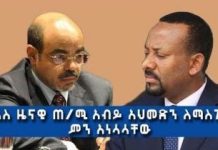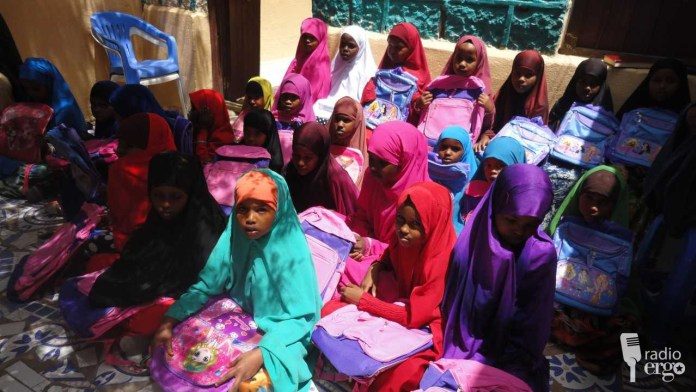Two schools funded by the business community and from diaspora remittances are giving free education opportunities to some of the growing numbers of orphaned and vulnerable children in the city of Burao in Somaliland.
In the last four months, 110 children aged six to 14 have been enrolled and another 270 have registered and are on the waiting list for places at the primary schools, one for boys and the other for girls.
Afifa Hasan Nur, the head teacher of Tabantaabo girls’ school, said they are providing school meals after witnessing the conditions that displaced children and others from poverty-stricken families are living in. She said most do not get regular meals and parents or guardians are unable to cope, especially if they are displaced.
The surrounding Toghdeer region has suffered heavily from the prolonged drought and huge numbers of pastoralist families have lost their livelihoods and migrated to urban areas in search of assistance.
The Commissioner of Burao district, Mohamed Diiriye Hayd, told Radio Ergo there are around 3,500 children in four large IDP camps around the town who have no access to education. Some are orphaned, whilst others have parents with minimal income. Local government schools charge fees of $10 and private schools in the area charge $30.
Saado Dhuux Hawd, 35, a single mother displaced from Duruqsi village, along the Ethiopian border, where she lost all her 180 goats, said her eldest daughter, aged nine, had been enrolled at Tabantaabo school. Her younger son and daughter were waiting for places.
“The children used to graze the animals and take care of the livestock, but now we don’t have any animals so they just play around and have nothing to do,” Saado said.
Tabantaabo’s first batch of 20 girls graduated last September. The school opened in 2010 and now has 220 students. The head said they will be taking in more new girls once the next grade eight students have graduated.
The head of Abubakar Sadiq boys’ school, Mohamud Mohamed Hersi, told Radio Ergo they have been talking to the Somaliland government and local business people to help expand the schools. The school has 10 classrooms and 12 teachers. There are 170 students, including 50 recently displaced by the drought, who are accommodated in dormitories with food and stationery.
Some orphaned children who completed primary are now being supported through secondary school by benefactors.






























